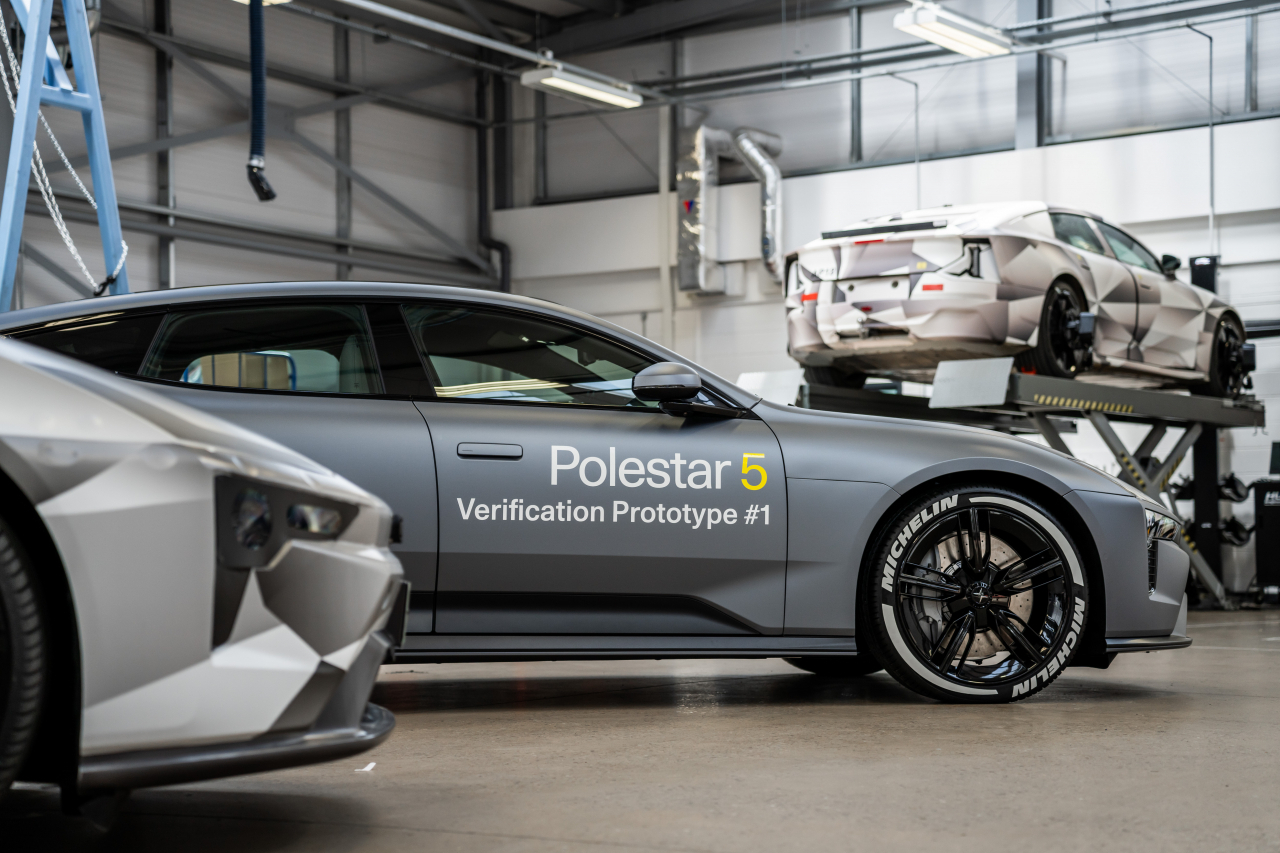 |
A prototype Polestar 5 is displayed at the Swedish carmaker’s research and development center in the UK. (SK On) |
South Korean battery maker SK On said Monday it has clinched a deal with Swedish carmaker Polestar to supply its premium electric vehicle batteries.
Under the agreement, the battery manufacturer will supply nickel, manganese and cobalt (NCM) batteries for the Polestar 5, the full-electric version of the carmaker's four-door coupe, from 2025.
The size of the deal was not disclosed.
The company said the partnership shows that the demand for high-performance NCM batteries is still high in the high-end EV segment.
The 56-centimeter-long high-nickel battery cell consists of more than 80 percent nickel and high levels of silicon in anode materials, making it a high energy density battery, according to SK On.
It also demonstrated improved safety features, having passed the stringent conditions in Thermal Propagation tests, which evaluate whether the heat caused in one or more cells transfers to adjacent cells in case of overheating. The company said it used battery module cases with harder surfaces and enhanced cooling efficiency by using cooling plates.
“We’re delighted to join hands with Polestar on its high-end EV model,” said SK On CEO Jee Dong-seob, in a statement. “We plan to solidify our partnership with Polestar and create new business opportunities together.”
The deal is a result of a close partnership between the two. In 2021, SK Group invested $60 million in the Swedish car brand through the New Mobility Fund, which was jointly set up by SK and Geely Auto, the holding company of Polestar.
Aside from Polestar, SK On also supplies batteries to global auto giants including Hyundai Motor Group, Ford Motor Co. and Volkswagen Group.
From July to September this year, SK On’s sales revenue jumped 45 percent to 3.2 trillion won ($2.4 billion) from a year earlier. Its operating loss decreased 36 percent from 134.6 billion won to 86.1 billion won in the same period -- the lowest since it started to expand its business in 2020.







![[Weekender] Korea's traditional sauce culture gains global recognition](http://res.heraldm.com/phpwas/restmb_idxmake.php?idx=644&simg=/content/image/2024/11/21/20241121050153_0.jpg)